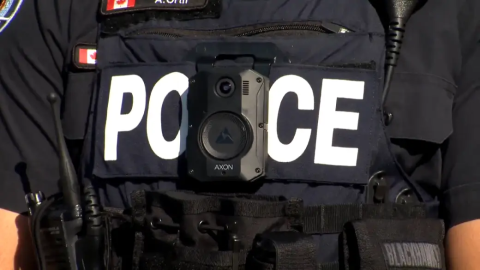The RCMP and the Government of Canada have moved one step closer to the national deployment of body-worn cameras (BWC). This comes after a BWC vendor completed an eight-week field test at multiple locations across Canada. Despite ongoing procurement and implementation delays, the federal government will not revise its decision on financial support, leaving local governments to absorb costs at the applicable cost-share ratio outlined in the Police Service Agreements.
The federal government committed $238.5 million towards this initiative to allow contract partners, including local governments, time to financially plan for the equipment. Funding was originally to include costs for the contract partners’ first three years following implementation. However, delays in the federal government’s procurement process led to a continuing delay in implementation. The federal government has indicated that it will not offer implementation funding after April 2024 regardless of when implementation occurs. Despite local government concerns, including correspondence from UBCM, the federal government confirmed this approach in May 2023.
Local governments will assume financial responsibility for BWC at the applicable cost-share rate outlined in the Municipal Police Unit Agreements starting when BWCs are deployed within their jurisdiction. Rollout is anticipated to begin in fall 2024. The federal government is estimating the annual per unit cost to be $3,000, which includes the BWC, software, Digital Evidence Management System, and support staff. The actual cost and billing methodology will be confirmed once the vendor’s contract is finalized. Information has been provided to local governments as part of the Multi-Year Financial Plans.
The field test involved testing BWCs with 199 frontline police users and 32 users in support roles for eight weeks, at various locations in Alberta, Nova Scotia, and Nunavut. Following a successful evaluation, it has been recommended that the RCMP proceed to a phased national deployment of the BWC and Digital Evidence Management System (pending Treasury Board approval). If approved, national deployment is expected to occur over 12-18 months.
Divisions are currently conducting site readiness assessments to determine which locations are best positioned to proceed as part of the first phase of implementation, which could begin as soon as fall 2024. British Columbia will likely deploy approximately 2,300 – 3,000 cameras during the implementation period. The B.C. RCMP (“E” Division) has identified the first sites where BWCs will be deployed for frontline policing duties: Tofino/Ahousat, Mission, Kamloops, Prince George, and Cranbrook (including B.C. Highway Patrol).
Local governments are encouraged to discuss details (e.g., projected costs, number of users/cameras, any additional requirements, etc.) with their Detachment Commanders to assist with budget planning.
Related articles:

